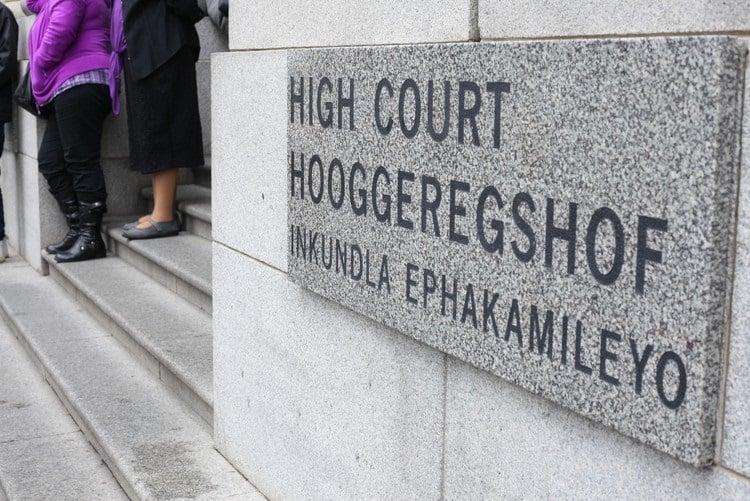
Africa-Press – South-Africa. Delivering our daily bread involves a tightly run security operation involving armed escorts for the trucks that drive around Cape Town, the Western Cape High Court heard on Monday.
This was revealed by a security company supervisor testifying in the case of a woman who allegedly contracted two bread delivery truck escorts to carry out a hit on her police officer husband.
Mmeli Jobela also owned a taxi business, and in 2017, while he and his wife were doing a booked pickup in Samora Machel at 02:30, he was shot in the head and died.
Their passengers got out and disappeared.
Jobela’s wife, Qaqamba Qayiso, and Valley Malema Kgapele are charged with and have pleaded not guilty to the murder of Jobela on 6 October 2017.
Thabiso Nakani was a third accused but has since died.
On Monday, witness Siyabulela Mali testified he was a supervisor for a security company contracted to escort Blue Ribbon bread trucks on their delivery rounds in Khayelitsha and surrounds.
Security escorts are commonplace in many parts of Cape Town to protect paramedics, council workers, bus drivers and passengers, cash-in-transit trucks and cigarette deliveries.
However, on Monday, the court heard bread trucks also need armed guards.
Two of those armed escorts were the accused, Kgapele and the late Nakani.
Mali testified the two started their shift by signing for their escort vehicle, which is checked for any damage before it goes out.
Then, they are issued a work gun and ammunition.
When the late Nakani still worked at the company, it had a policy to pay extra to guards with their own guns and ammunition.
Nakani was one of those guards, and he carried a .38 revolver.
Kgapele was issued with a 9mm pistol, with two magazines for the 18 bullets issued to him.
The escorts only received their routes once all the paperwork for issuing their car, firearm, and bullets was completed.
The routes changed every day. Of the two people assigned to a vehicle, one was a driver, and one was a guard, but both were armed.
“The work of the armed guards is to escort these trucks so that they don’t get robbed,” Mali told Judge Monde Samela.
“Each truck has its own armed guard. And each truck will be followed [by the guards].”
Mali said the escorts met the bread trucks at a police station, and the convoys fanned out on their routes.
The State alleged Jobela’s wife, whom Jobela called “Miso” for short, hired Kgapele and Nakani to kill him.
On 6 October, Jobela and Qayiso set off in their Avanza to do an early morning collection of two passengers who had booked with them.
Qayiso said they were driving when she heard a noise, and then Jobela crashed the taxi into an empty market table.
That is when she realised he had been shot.
She said their passengers got out and disappeared.
But just before Mali could go into more detail on Kgapele and Nakani’s route and shift times between 5 and 6 October, Samela announced he would adjourn for the day because one of the lawyers needed to tend to a personal matter, leaving the bread run on a cliffhanger.
Before leaving the court, Samela also called a witness who had been difficult to trace and who had been waiting in the wings.
He wanted to know why he was avoiding the investigating officer who called him and visited his workplace in vain.
“When?” he asked.
He then added he had been unwell.
Still smarting over a doctor’s note handed in by Qayiso earlier that he found vague, Samela asked for more detail.
He said he had too much to drink one night and fell on his stove and burnt his bottom and was indisposed for a while.
Those in court buried their chuckling and giggling into the collars of the thick coats they wore for the Cape Town cold snap.
Samela pulled everything back together again with a stern warning: “Look Mhlekazi, [sir] I am not playing games. I’m warning you, please take this very seriously.”
The case will resume on Wednesday.
For More News And Analysis About South-Africa Follow Africa-Press





